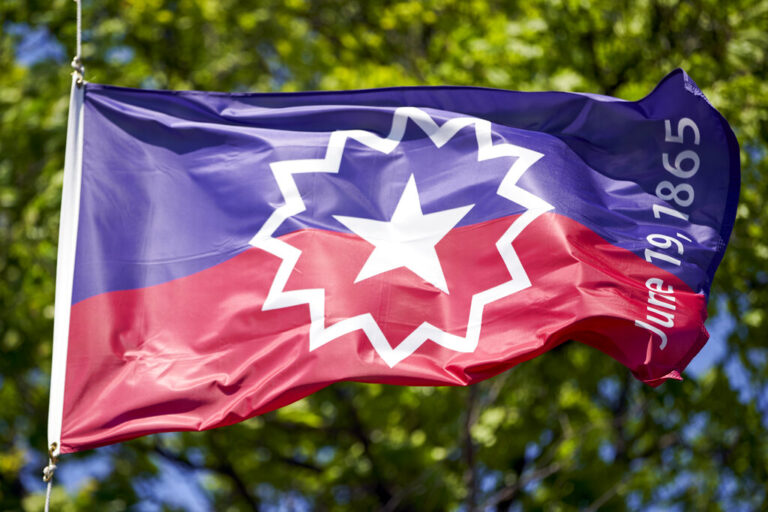URBANA — This Sunday marks the second year that Juneteenth will be an official state and federal holiday.
Juneteenth celebrates the day in 1865 when Union troops marched into Galveston, Texas and forced the Confederate state to free the enslaved.

Slavery existed in Illinois too, despite its status as a free state.
“Whether we’re talking Ohio, Illinois, or Indiana, you’re looking at states that bordered some southern state. Therefore, the southern part in each of those states is going to be more reflective of the social relations of the South,” says University of Illinois professor Sundiata Cha-Jua.
Cha-Jua teaches history and African American studies in Urbana-Champaign.
Four Illinois governors were slave-owners. The first Illinois Constitution allowed slavery in salt mines and allowed slave-owners to keep people they had already enslaved in bondage.
Cha-Jua says the 13th Amendment freed the last enslaved Illinoisans in 1865.
From that point onwards, Black people have celebrated some kind of emancipation day in Illinois, according to Cha-Jua.
Different communities in Illinois observed different dates. Some celebrated the day Abraham Lincoln gave the Emancipation Proclamation to free those enslaved in Confederate territories. Some celebrated January 1st, as the day the proclamation was set to take effect.
Despite the variation in date, the celebrations looked similar, Cha-Jua says.
“There’d be a reading of the Emancipation Proclamation. And this is important. This is what’s being lost. There would be a speech and that speech was generally an assessment of the state of the race. Where are we as a nation within a nation to this year?” Cha-Jua says.
Cha-Jua says these celebrations occurred in Black churches and on private land to avoid hostility from white people. The events also often involved food, music and a parade.
Emily Hays is a reporter for Illinois Public Media. Follow her on Twitter @amihatt.

